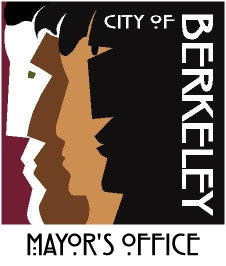Berkeley City Council Approves $67.5 Million for Creating and Renovating Affordable and Permanent Supportive Housing
December 15, 2021
BERKELEY – Last night, the Berkeley City Council unanimously approved a series of funding allocations totaling around $67.5 million towards the creation of 406 new units of affordable and permanent supportive housing and the renovation of an additional 66 affordable housing units. This represents one of Berkeley’s largest affordable housing commitments, and is the result of the 2018 voter-approved housing bond, Measure O.
“This significant investment will help us provide much needed housing for our unhoused, low-income, teachers and working-class residents who are being priced out of the region,'' said Mayor Arreguin. “This continues our acceleration of the development of affordable housing which for too long has been severely underfunded.”
Specifically, the funding will go towards the following housing projects:
Ashby Lofts by Satellite Affordable Housing Associates (SAHA): $850,000. These funds will be used for renovating the 54-unit property at 2909-2919 Ninth St. which provides housing to people at 30%-50% Area Median Income (AMI), including many with physical or mental disabilities.
Ephesians Legacy Court by Community Housing Development Corporation (CHDH): $2,500,000 at the site of the Ephesians Church of God in Christ in South Berkeley. These funds will be used for predevelopment costs for the 82-unit development at 1709 Alcatraz Ave. Housing will be available for seniors earning 30%-60% AMI, with 20 units being set aside for formerly unhoused.
MLK House by Resources for Community Development (RCD): $1,178,974. These funds will be used for the renovation of 12 SRO units at 2942-2944 MLK Jr Way which primarily houses clients of Berkeley Mental Health.
St. Paul Terrace by CHDH: $2,500,000. These funds will be used for predevelopment costs for the 52-unit development at St. Paul AME Church at 2024 Ashby Ave, near Ashby BART. The units will serve households earning 30%-60% AMI, with 11 units reserved for formerly unhoused households.
Supportive Housing at People’s Park by RCD: $14,359,593. These funds will be used for development and operating subsidies for a development approved by the UC Regents at People’s Park, 2556 Haste St. The development will have 119 units at 10%-50% AMI, with 62 of these units dedicated as permanent supportive housing units with onsite supportive services.
BUSD Workforce Housing by SAHA: $24,500,000. These funds will be used for developing a 110-unit educator housing for the Berkeley Unified School District at the Berkeley Adult School at 1701 San Pablo Ave. It will provide housing for a mix of income levels, from 30%-120% AMI.
Golden Bear Inn by Memar Properties and Bay Area Community Services (BACS): $8,463,535. These funds will be used for the acquisition of the Golden Bear Inn at 1620 San Pablo Ave to convert it into permanent supportive housing under the State’s Homekey Program. 43 rooms will be reserved for people experiencing chronic homelessness, earning up to 30% AMI.
Additionally, approximately $13 million will be reserved for development of either Ephesians Legacy Court or St Paul Terrace, with future funding prioritized for whatever project is not funded in this round. The $13 million will be awarded to the project that is most ready to move forward into the development stage. These projects represent a unique partnership between longstanding South Berkeley churches and affordable housing developers to repurpose land for low-income housing.
Funding for these developments comes from a multitude of sources. A majority of these funds will come from Measure O, a $135 million affordable housing bond approved by Berkeley voters in 2018. Measure O has been used to fund other affordable projects, including the 142-unit Berkeley Way Apartments/HOPE Center, the largest affordable housing development in Berkeley’s history slated to open in spring 2022. Other funds will come from Measure U1, a gross receipts tax on larger residential developments for funding affordable housing approved in 2016, and Measure P, a transfer tax to support homeless services approved in 2018.
A survey of 500 Berkeley residents conducted in October 2021 identified increasing affordable housing for low-income and homeless residents as the number one priority. Under the proposed Regional Housing Needs Allocation (RHNA), to be approved by the Association of Bay Area Governments (ABAG) on December 16, Berkeley must develop 8,934 new units of housing between 2023-2031, of which 3,854 will be reserved for very low and low-income households.
